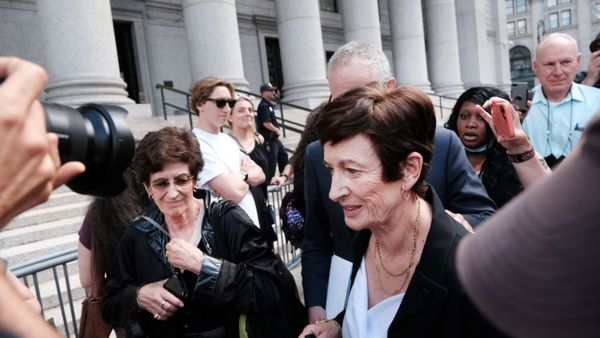
Turns out the qualities that made Runrig one of Scotland’s biggest bands are also a perfect match for the musical. The heart-on-sleeve passions, the windswept romance and the wistful longing for the land that characterised the folk-rock outfit’s 45-year career before their split in 2018 are well suited to a form that thrives on broad gestures and emotional directness.
Better still, where Rory and Calum Macdonald’s music could be bombastic on record, it becomes nuanced and sweetly melodic on stage. Under the musical direction of John Kielty, we are reminded that even the forthright beat of the title track’s chorus is offset by verses that are subtle and tender, slipping in and out of Gaelic as they draw on folk tradition. The closing duet on Somewhere, from Runrig’s final album, could be a Broadway ballad, albeit with an uncommonly poetic flourish.
Playwright Morna Young also challenges preconceptions. She tells a story of a young family who return to the village of Glenbeg, increasing the population from 105 to 108, after a time living in London. The father, Euan (Steven Miller), is like a less successful Diana Gabaldon, the Outlander author, writing bodice-ripping historical novels for a fanbase of expat readers who see more romance than horror in the Highland clearances.
His profession allows Young to confront the question of the appeal of Runrig’s music – no shortage of nostalgic paeans to the mountains here – and to argue that their romance is rooted in the real. With shades of Local Hero, The Stamping Ground is about the locals’ attempt to orchestrate a community buyout of the one remaining pub. Their economic struggle is, as one character says, “a form of eviction” grimly reminiscent of the clearances. There are politics in this landscape.
Luke Kernaghan’s vigorous production is forever bursting into dance under the lively movement direction of Jade Adamson on Kenneth MacLeod’s circular stone set, made dynamic by Simon Wilkinson’s stadium-rock lighting. There are strong performances throughout, but at its vocal and emotional heart are four women, Caitlin Forbes, Christina Gordon, Annie Grace and, above all, Neshla Caplan, soulful and true as the still-young mother who sees in her childhood home a sense of transformative possibility.
At Eden Court, Inverness, until 30 July







